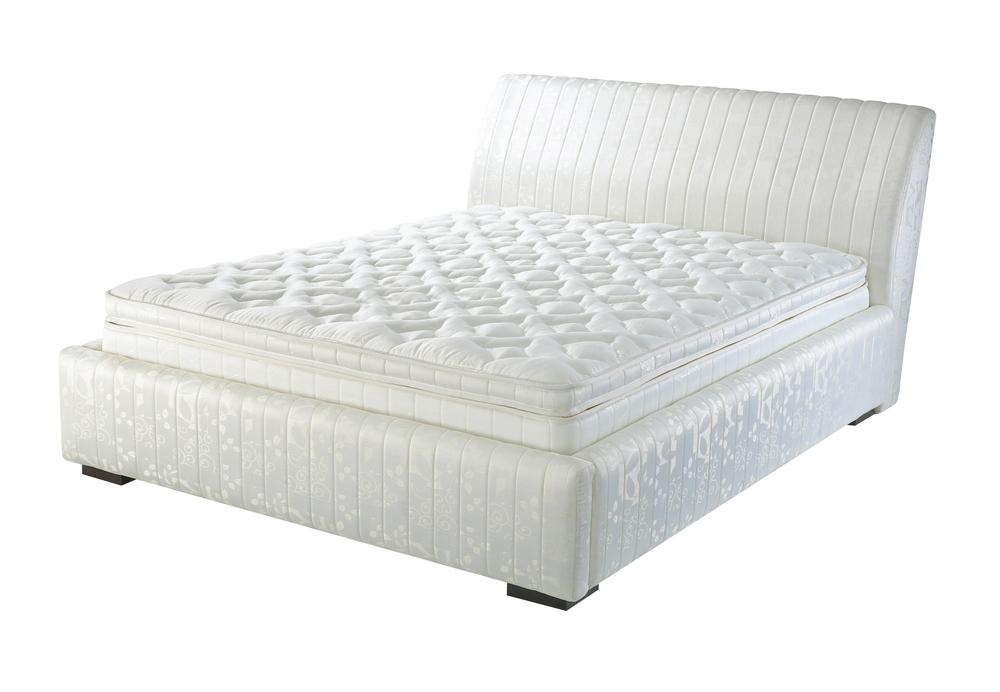The Hidden Dangers of Sleeping on an Inappropriate Mattress and How to Protect Your Health
Discover the hidden health risks associated with using an inappropriate or aging mattress. Learn how mattress choice impacts allergies, pain, sleep quality, and overall well-being. Find practical tips to select the best mattress and improve your sleep environment for better health outcomes.

The Hidden Dangers of Sleeping on an Inappropriate Mattress and How to Protect Your Health
Sleep is vital for maintaining overall health and well-being, yet many overlook the importance of choosing the right mattress. An unsuitable or aging mattress can silently contributes to various health problems that go beyond mere discomfort. In this comprehensive guide, we delve into the often-overlooked risks associated with using the wrong mattress and provide insights on how to select the best bedding to promote better sleep and improved health.
Understanding the Impact of Mattress Age and Material on Allergic Reactions
One of the primary health concerns linked to old or inferior quality mattresses is the development of allergic reactions. As mattresses age, they tend to accumulate dust mites—microscopic creatures that thrive in warm, humid environments. Dust mites feed on dead skin cells shed naturally by humans and can remain embedded deep within mattress fibers. For individuals sensitive to allergens, this can trigger symptoms such as sneezing, runny nose, itchy eyes, and even asthma attacks. Moreover, the buildup of mold, bacteria, and pet dander in inadequately maintained mattresses further exacerbates allergy symptoms. To mitigate these risks, regularly cleaning your mattress and replacing it every 7-10 years is highly recommended.
Physical Discomfort and Musculoskeletal Problems
The type and condition of your mattress directly influence your musculoskeletal health. An unsupportive mattress fails to provide the necessary spinal alignment and support during sleep. For instance, a mattress that is too soft or sagging can cause your spine to fall out of proper alignment, leading to persistent back pain, neck stiffness, and joint discomfort. Conversely, excessively firm mattresses may generate pressure points, resulting in soreness and stiffness in hips, shoulders, and other joints. Investing in a mattress that offers medium-firm support tailored to your body’s needs can significantly reduce these issues. Techniques such as trying out different mattress firmness levels before purchase, and ensuring the mattress conforms to your natural spine curvature, are excellent steps toward alleviating persistent pain.
Night Sweats and Temperature Regulation
Night sweats, characterized by excessive sweating during sleep, can severely disrupt restful sleep cycles. One overlooked cause is the mattress material itself. Non-breathable materials trap heat and moisture, resulting in overheating and discomfort. Memory foam, for example, while plush, can retain body heat, making it unsuitable for hot sleepers. To avoid this, opt for breathable mattress options such as gel-infused memory foam, latex, or hybrid mattresses that promote airflow. Ensuring your bedding includes moisture-wicking sheets and maintaining a cool sleeping environment can also help regulate body temperature and minimize night sweating.
How an Aging Mattress Contributes to Snoring and Breathing Issues
Over time, a mattress that lacks adequate support can lead to airway constriction, which may increase the likelihood and severity of snoring. When a mattress sags or compresses unevenly, it can alter your sleeping posture, causing throat tissues to vibrate more intensely and leading to loud snoring. This not only diminishes sleep quality but can also be indicative of underlying sleep apnea risks. Replacing an old or sagging mattress with an ergonomic one helps maintain proper sleeping posture and airway openness, thereby reducing snoring intensity and improving overall sleep health. People experiencing severe snoring or breathing difficulties should consult healthcare providers and consider comprehensive sleep assessments.
Sleep Quality and Its Effect on Weight and Overall Health
Inadequate or uncomfortable sleep caused by a poor-quality mattress can have far-reaching effects on your health, including weight management. Sleep deprivation influences hunger hormones such as ghrelin and leptin, leading to increased appetite, cravings, and overeating. Over time, this can contribute to weight gain and associated health issues like diabetes and cardiovascular diseases. Conversely, a comfortable, supportive mattress promotes restful sleep, enabling your body to perform crucial metabolic functions efficiently. Prioritizing sleep quality by choosing the right mattress supports not only physical recovery but also helps regulate appetite and maintains a healthy body weight. Developing a consistent sleep routine, coupled with investing in a high-quality mattress, can radically improve your overall health and wellness.
In summary, your mattress plays a crucial role in your overall health and quality of life. It is essential to select a supportive, breathable, and allergen-resistant mattress suited to your individual needs. Regular replacement and proper maintenance are important strategies to prevent health issues related to old or unsuitable mattresses. By understanding these hidden risks and taking proactive steps, you can significantly enhance your sleep quality, reduce health risks, and enjoy a better, healthier life.





